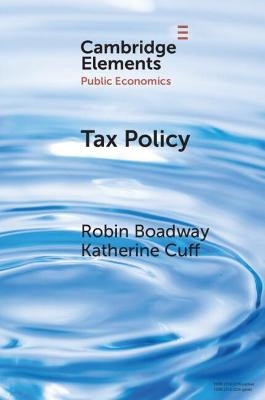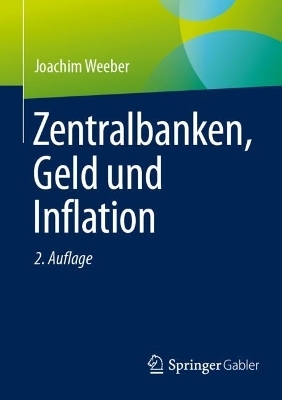
Tax Policy
Principles and Lessons
Seiten
2022
Cambridge University Press (Verlag)
978-1-108-94945-3 (ISBN)
Cambridge University Press (Verlag)
978-1-108-94945-3 (ISBN)
This Element discusses various conceptual issues with social welfare maximization, including interdependent utilities, heterogeneous preferences, behavioural economics, social norms, and the source of the social welfare function and their implications for optimal taxation.
Tax policies are informed by principles developed in the tax theory and policy literature. This Element surveys the policy lessons that emerge from optimal tax analysis since the 1970s. This Element begins with the evolution of tax policy principles from the comprehensive income approach to the expenditure tax approach to normative tax analysis based on social welfare maximization and recounts key results from the optimal income tax analysis inspired by Mirrlees and extended by Diamond to the extensive margin approach. This Element also emphasizes analytical techniques that yield empirically relevant concepts and show the equity-efficiency trade-off at the heart of tax policy. We also extend the analysis to recent literature incorporating involuntary unemployment, and policies like welfare and unemployment insurance.
Tax policies are informed by principles developed in the tax theory and policy literature. This Element surveys the policy lessons that emerge from optimal tax analysis since the 1970s. This Element begins with the evolution of tax policy principles from the comprehensive income approach to the expenditure tax approach to normative tax analysis based on social welfare maximization and recounts key results from the optimal income tax analysis inspired by Mirrlees and extended by Diamond to the extensive margin approach. This Element also emphasizes analytical techniques that yield empirically relevant concepts and show the equity-efficiency trade-off at the heart of tax policy. We also extend the analysis to recent literature incorporating involuntary unemployment, and policies like welfare and unemployment insurance.
1. Introduction; 2. Evolving principles of tax policy extent of redistribution; 3. Policy implications from optimal tax theory; 4. Extensions to the optimal income tax approach; 5. Estimating the optimal income tax structure; 6. Different labour market environments; 7. Behavourial economics considerations; 8. Summary of policy implications; References.
| Erscheinungsdatum | 27.04.2022 |
|---|---|
| Reihe/Serie | Elements in Public Economics |
| Zusatzinfo | Worked examples or Exercises |
| Verlagsort | Cambridge |
| Sprache | englisch |
| Maße | 152 x 229 mm |
| Gewicht | 136 g |
| Themenwelt | Recht / Steuern ► Steuern / Steuerrecht |
| Sozialwissenschaften ► Politik / Verwaltung ► Staat / Verwaltung | |
| Wirtschaft ► Volkswirtschaftslehre ► Makroökonomie | |
| Wirtschaft ► Volkswirtschaftslehre ► Mikroökonomie | |
| Wirtschaft ► Volkswirtschaftslehre ► Wirtschaftspolitik | |
| ISBN-10 | 1-108-94945-2 / 1108949452 |
| ISBN-13 | 978-1-108-94945-3 / 9781108949453 |
| Zustand | Neuware |
| Haben Sie eine Frage zum Produkt? |
Mehr entdecken
aus dem Bereich
aus dem Bereich
Organisationen steuern, Strukturen schaffen, Prozesse gestalten
Buch | Softcover (2024)
Rehm Verlag
CHF 53,20
Buch | Softcover (2024)
Springer Fachmedien Wiesbaden GmbH (Verlag)
CHF 41,95


